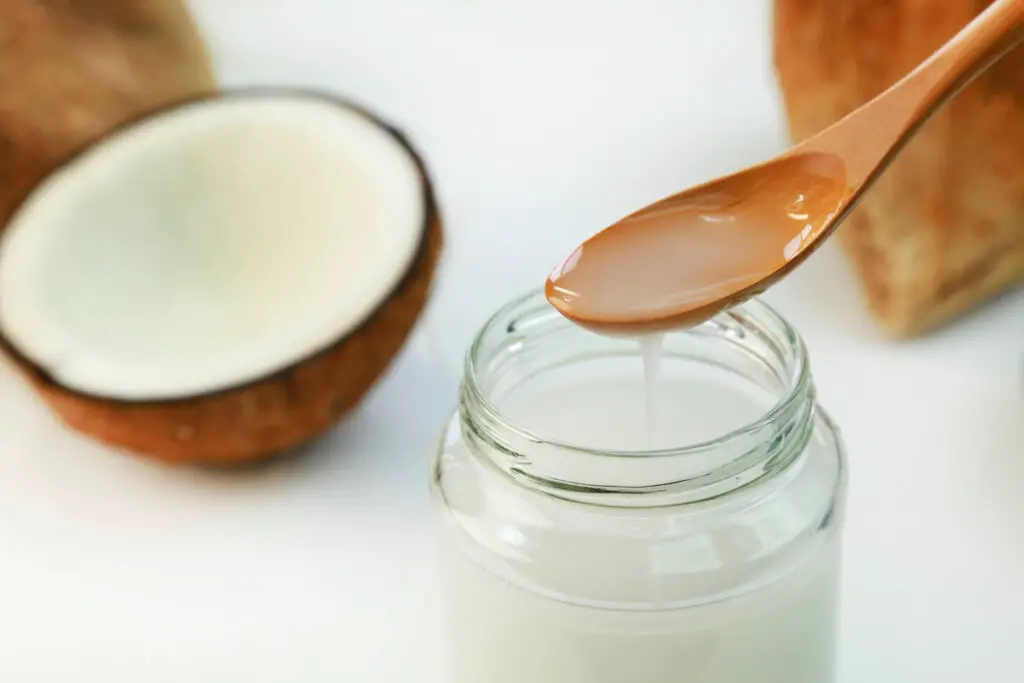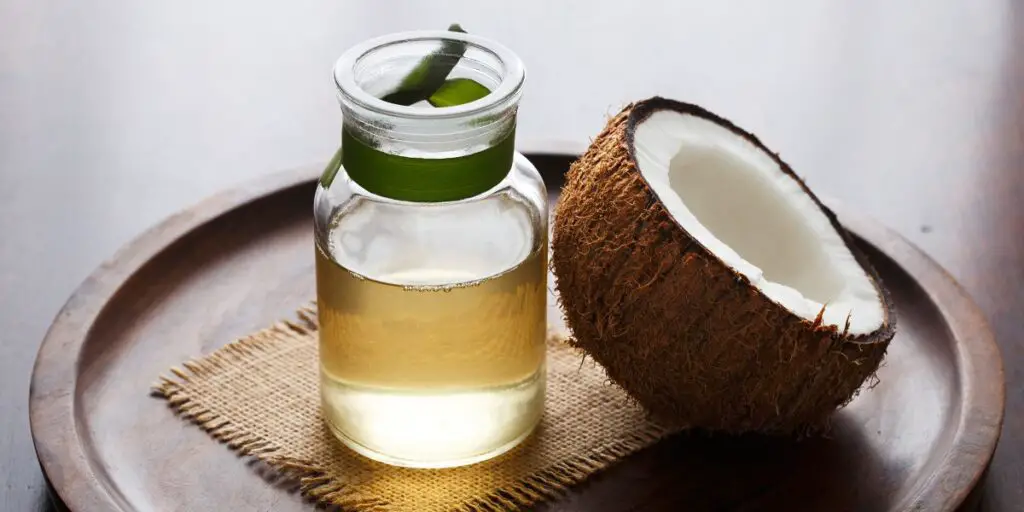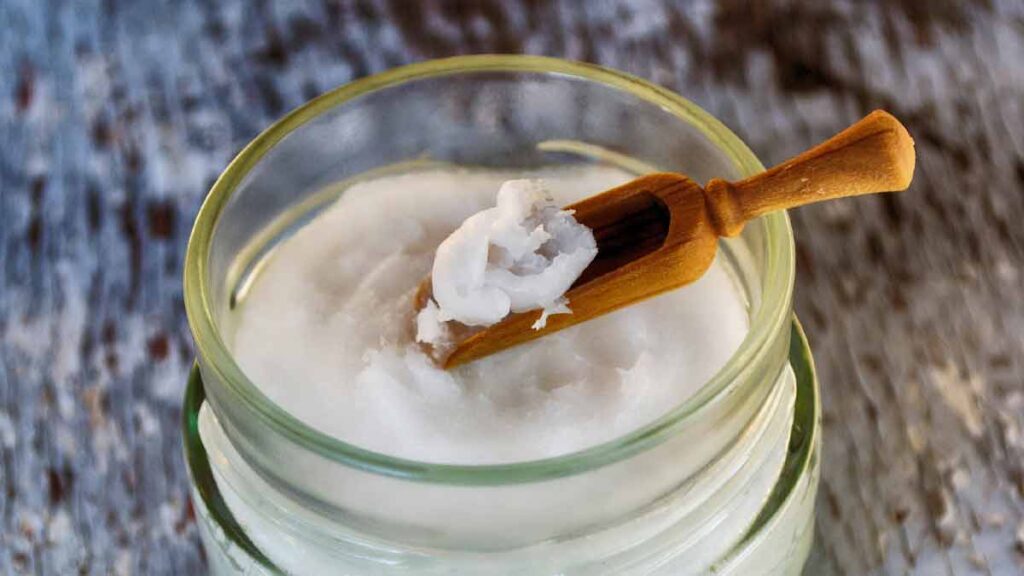
If you’ve recently gotten a tattoo, congratulations! You’re probably feeling proud and excited to show off your new ink.
But if you want your tattoo to stay looking great for years to come, it’s important that you take proper care of it.
One of the most effective ways to protect and nourish your tattoo is by using coconut oil.
Let’s explore why using coconut oil for tattoos is so beneficial.
Contents
- 1 Benefits of Using Coconut Oil for Tattoos
- 2 Is It Safe to Put Coconut Oil on a New Tattoo?
- 3 Will Coconut Oil Remove Temporary Tattoos?
- 4 What Kind of Coconut Oil Is Good for Tattoos?
- 5 When Can I Put Coconut Oil on My Tattoo?
- 6 Is Coconut Oil Good for a Peeling Tattoo?
- 7 What Is the Best Alternative to Coconut Oil for Tattoos?
- 8 Precautions While Using Coconut Oil for Tattoos
- 9 Conclusion:
Benefits of Using Coconut Oil for Tattoos
Here are the benefits of using coconut oil for tattoos:
1. Nourishing Skin Cells
Coconut oil is chock-full of vitamins, minerals, and antioxidants that are essential for healthy skin cells.
- These nutrients help to protect the skin from free radicals that can cause damage and make your tattoo look faded over time.
- Coconut oil also helps keep the skin hydrated which prevents cracking or peeling. This means that it can reduce the chances of infection and reduce itchiness in newly-inked tattoos.
- As an added bonus, coconut oil has natural anti-inflammatory properties which can help reduce redness or irritation around your tattoo site.
2. Protection Against Bacteria & Fungus
Coconut oil contains lauric acid which has powerful antimicrobial properties that can help fight bacteria and fungus on your skin’s surface.
This makes coconut oil an ideal choice for protecting open wounds like those created during a tattoo session.
The antimicrobial properties also help to keep any existing infections at bay while promoting healing and reducing scarring in the area around your tattoo.
Is It Safe to Put Coconut Oil on a New Tattoo?
Yes! Coconut oil is perfectly safe to use on new tattoos.
It’s important to avoid using any harsh chemicals or fragrances that could irritate the skin, but coconut oil is gentle and non-irritating.
Plus, it has natural healing properties that can help keep your tattoo looking its best for years to come.
Will Coconut Oil Remove Temporary Tattoos?
No, coconut oil will not remove temporary tattoos.
For best results, use a commercial tattoo remover to safely and effectively remove your temporary ink.
What Kind of Coconut Oil Is Good for Tattoos?
Here’s a short guide to help you choose the right kind of coconut oil for your tattoos.
1. Virgin Coconut Oil:
The most common type of coconut oil is “virgin,” or unrefined coconut oil.
This type of coconut oil has been extracted from fresh coconuts without any additional processing and has a light, nutty aroma.
Virgin coconut oil is an excellent choice for those with sensitive skin because it contains no additives and helps maintain healthy moisture levels.

2. Refined Coconut Oil
Refined coconut oil is another option; this type has been treated with chemicals to remove impurities and neutralize odors.
While refined coconut oils may not be as pure as virgin ones, they do provide a longer shelf life and are less likely to go rancid over time.
Refined oils are also typically cheaper than virgin oils and can be easier to find in many stores.
3. Organic Coconut Oil:
Organic coconut oils are produced without the use of pesticides or synthetic fertilizers, which makes them a great choice if you’re looking for something that’s completely natural and free from any additives or preservatives.
Organic oils may cost more than conventional varieties but they are better for your health—and the environment—in the long run.
When Can I Put Coconut Oil on My Tattoo?
You can start using coconut oil on your tattoo as soon as it has fully healed.
Be sure to wait until the scabbing has disappeared and the area is no longer red or tender before applying coconut oil.
Apply a thin layer of oil to the affected area several times a day. This will help keep your tattoo looking fresh and vibrant for years to come!
Is Coconut Oil Good for a Peeling Tattoo?
Coconut oil can be helpful for a peeling tattoo, as it helps to keep the skin hydrated and nourished.
However, if your tattoo is severely cracked or peeling, you should seek medical advice right away. It could be a sign of infection and may require further treatment.
What Is the Best Alternative to Coconut Oil for Tattoos?
If you’re looking for an alternative to coconut oil for tattoos, another great option is jojoba oil.
This natural oil is rich in vitamins and minerals that help promote healing and healthy skin, plus it’s non-comedogenic (meaning it won’t clog your pores).
Jojoba oil also has antibacterial properties which can protect against infection.
In addition, it’s light and non-greasy—making it perfect for tattoos!
Precautions While Using Coconut Oil for Tattoos
When using coconut oil for tattoos, it’s important to take some precautions.
- Always make sure to purchase a high-quality oil that is certified organic and free from any additives or preservatives.
- You should also avoid applying too much oil—a thin layer is usually enough.
- Lastly, be sure to wash your hands thoroughly before and after applying the oil to prevent any bacteria or dirt from getting into your tattoo.
Conclusion:
When it comes to taking care of a new tattoo, there are few things more beneficial than coconut oil!
Not only does it nourish skin cells with its array of vitamins, minerals, and antioxidants, but its antifungal and antibacterial properties offer protection against bacteria or fungus on the surface of the skin as well as help with any inflammation or irritation in the area surrounding your ink.
No matter what type of coconut oil you choose, it should always be cold-pressed and free from added fragrances or other ingredients that could irritate your skin or interfere with your tattoo ink. As long as you follow these guidelines, you should have no trouble finding the perfect kind of coconut oil for your tattoo aftercare needs!
Whether you’re looking for relief from dryness or itching or just need a little extra protection against infection, reach for all-natural coconut oil! It’s an easy way to ensure that your new tattoos stay looking great for years to come!














